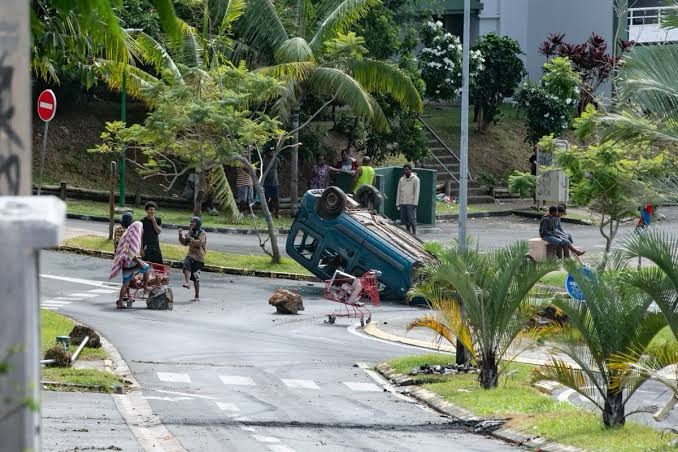France deploys troops, bans TikTok, to quell New Caledonia unrest

France deployed troops to New Caledonia’s ports and international airport, banned TikTok and imposed a state of emergency on Thursday after three nights of clashes that have left five dead and hundreds wounded.
Pro-independence, largely indigenous protests against a French plan to impose new voting rules on its Pacific archipelago have spiralled into the deadliest violence since the 1980s.
Palm-lined boulevards in the capital Noumea, that are usually thronged with tourists, were littered with debris and patrolled by armoured vehicles, while some locals piled up household objects to make roadblocks.
A gendarme was killed on Thursday, French Interior Minister Gerald Darmanin told AFP, bringing to two the number of police officers who have died.
A police source told AFP he was killed by friendly fire.
Darmanin accused Azerbaijan, which resents Paris’ support for its arch-rival Armenia, of “interference” in the unrest, which Baku swiftly rejected as “baseless”.
New Caledonia separatists were among pro-independence groups from French overseas territories invited to Baku last year.
The alliance on Tuesday condemned “arrests of Kanaks and violence by the French authorities against civilians in New Caledonia”.
In Noumea, there was a suspected arson attack on the building housing a consultative body for the indigenous Kanak people, its staff said, although the extent of the damage was not immediately clear.
Security forces placed five suspected ringleaders under house arrest, according to the high commission, which represents the French state in New Caledonia.
More than 200 “rioters” have been arrested, the high commission said, numbering participants at up to 5,000 in greater Noumea.
It added that “people have been ambushing law enforcement officers” with “sustained fire from hunting rifles”.
Hundreds of people, including 64 police, have been wounded, officials said, among the territory’s population of around 270,000.
Nearly 1,800 law enforcement officers have been mobilised and a further 500 will reinforce them, a government spokeswoman said.












